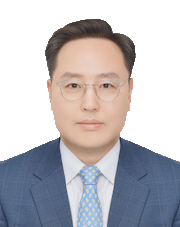
Interview with a professor who won the 2024 Doosan Yonkang Environment Research Fund
Kim Jeong Hwan, Environment Engineering
Inha University
Q. Once again, congratulations on being selected as the winner of the ‘Doosan Yonkang Environment Research Fund’
A. First of all, I am deeply honored and very pleased to receive the Grand Prize of the Doosan Yonkang Foundation Environmental Academic award. I am very grateful to the committee members for this award. Additionally, I would like to share this award with my research team members who have worked day and night.
Q. Among the many fields of engineering, I would like to hear the reason why you chose “Environment” as your major.
A. I had many interests in engineering. Among the various fields, environmental engineering fascinated me particularly because it requires an interdisciplinary approach by combining scientific and engineering knowledge to address a wide range of environmental problems related to water, air, solid waste and soil/groundwater.
Q. It would be grateful if you are able to explain the field you are working on, and the importance of the research.
A. Currently, I am studying to develop low-energy treatment and recovery technologies as well as process intensification which can recover valuable resources whereas effluent with high quality can be produced from wastewaters. Especially, I have been studying to combine membrane which is semi-permeable filtration materials with anaerobic bioreactor to recover biogas as valuable resource. Furthermore, I am focused on developing technologies to recover high valued products from wastewater and to reuse them effectively.
Paradigm shifts are needed to recognize future wastewater as valuable raw materials not waste to be disposed. For many years, wastewater treatment has relied on aerobic treatment, which consumes significant energy to provide aeration for microbial growth and the reduction of membrane fouling which is inevitable phenomena in membrane bioreactors. On the other hand, anaerobic treatment offers great advantages because it can recover biogas in the form of methane. Nevertheless, there are still technical limitations with anerobic treatment alone. Therefore, anaerobic membrane bioreactor technology, which can resolve these limitations, is a key technology to promote resource recovery from low-strength wastewater such as domestic sewage.
Q. Could you please provide an explanation of the award-winning research paper?
A. Granular activated carbon (GAC) which has been generally applied as fluidized media in anaerobic fluidized bed membrane bioreactor for wastewater treatment. The GAC can provide a high surface area for microbial growth and reduce membrane fouling effectively at low energy demand because it can be fluidized by recirculating bulk suspension through the reactor. However, long-term reactor operation can cause fragmentation of GAC particles, leading to reduce methane production rates while exacerbating membrane fouling. To solve these issues, a new approach was taken by applying polymer-based fluidized media with high mechanical stability and flexibility after performing surface coating with conductive materials alternative to GAC. It was found that electron transfer between microbes was accelerated, enhancing methane production rates and reducing membrane fouling during the whole operational period, in comparison to the results observed by the same media without surface coating. This finding is expected to provide valuable fundamental results in the research area for future development of fluidized media for the AFMBR aiming at resource recovery from wastewater.
Q. I would like to inquire about your plans as a professor researcher.
A. To achieve my future research goals for resource recovery from wastewater, I would like to continue my researches in this subject. Particularly, I will focus on optimization of anaerobic membrane bioreactors and process intensification, recovery of nutrients and dissolved methane from wastewater, development of functional materials to reduce fouling and wastewater reuse applications. In addition, I plan to expand my research into decentralized wastewater management and industrial wastewater sector.
Q. Lastly, could you please share a few words of encouragement or advice for your fellow surgeons who are applying for the ‘Doosan Yonkang Environment Research Fund’?
A. It is hard to focus single research area currently, but with dedication and belief in your work, I believe that you can contribute to the field with meaningful results. I truly hope that many researchers in environmental sciences and engineering fields will have opportunities to apply for the esteemed Doosan Yonkang Foundation Environmental Academic award.




